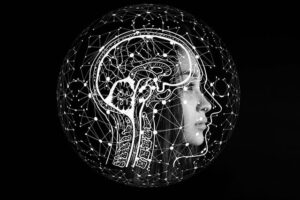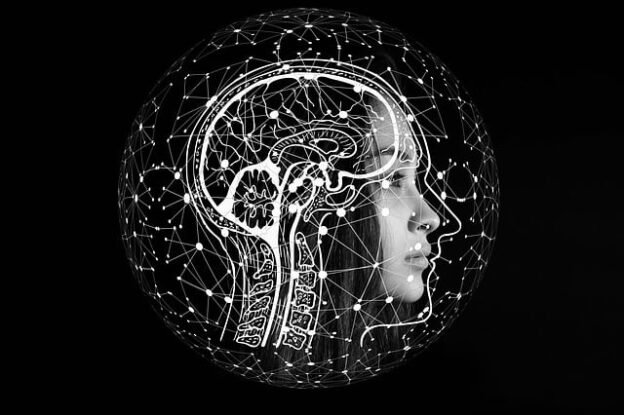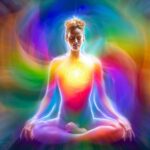Jungian psychology is a branch of psychology that focuses on the unconscious mind and its influence on behavior and emotions. One of the key concepts in Jungian psychology is archetypes, which are universal patterns of behavior and symbols that are present in the collective unconscious.
Understanding archetypes is important for personal growth and development because they can help individuals gain insight into their own behavior and emotions.
Introduction to Jungian Archetypes
 Archetypes are universal patterns of behavior and symbols that are present in the collective unconscious. They are formed through the experiences of individuals and their ancestors, and they represent common human experiences and emotions. Archetypes can be thought of as templates for behavior, emotions, and thoughts that are present in all humans.
Archetypes are universal patterns of behavior and symbols that are present in the collective unconscious. They are formed through the experiences of individuals and their ancestors, and they represent common human experiences and emotions. Archetypes can be thought of as templates for behavior, emotions, and thoughts that are present in all humans.
Archetypes are important in understanding the human psyche because they provide insight into the unconscious mind. By understanding archetypes, individuals can gain insight into their own behavior and emotions, as well as the behavior and emotions of others. Archetypes can also help individuals identify patterns in their lives that may be holding them back from personal growth and development.
The 12 Archetypes Explained
There are 12 archetypes in Jungian psychology, each with its own set of characteristics. The 12 archetypes are: the Innocent, the Explorer, the Sage, the Hero, the Outlaw, the Magician, the Regular Guy/Girl, the Lover, the Jester, the Caregiver, the Creator, and the Ruler.
- The Innocent archetype represents purity and simplicity.
- The Explorer archetype represents a desire for adventure and new experiences.
- The Sage archetype represents wisdom and knowledge.
- The Hero archetype represents courage and strength.
- The Outlaw archetype represents rebellion against authority.
- The Magician archetype represents transformation and change.
- The Regular Guy/Girl archetype represents a desire for belongingness.
- The Lover archetype represents passion and intimacy.
- The Jester archetype represents humor and playfulness.
- The Caregiver archetype represents nurturing and compassion.
- The Creator archetype represents creativity and innovation.
- The Ruler archetype represents power and control.
Each archetype manifests in different ways in real life. For example, the Innocent archetype may manifest as a desire for simplicity and a fear of change. The Explorer archetype may manifest as a desire for travel and adventure. The Sage archetype may manifest as a love of learning and a desire for knowledge.
The Shadow Archetype
The Shadow archetype represents the dark side of the human psyche. It is made up of repressed emotions, desires, and impulses that are considered unacceptable by society. The Shadow archetype can affect behavior and emotions in negative ways, such as causing individuals to act out in anger or engage in self-destructive behaviors.
Integrating the Shadow archetype is important for personal growth because it allows individuals to confront their own negative emotions and desires. By acknowledging and accepting these aspects of themselves, individuals can work towards healing and personal growth.
The Anima/Animus Archetype
The Anima/Animus archetype represents the feminine/masculine aspects of the human psyche. It affects relationships by influencing how individuals relate to members of the opposite sex. For example, individuals with a strong Anima/Animus archetype may be attracted to partners who embody qualities that they lack.
Integrating the Anima/Animus archetype is important for healthy relationships because it allows individuals to understand their own needs and desires in relationships. By integrating this archetype, individuals can develop more fulfilling relationships with partners who complement their own strengths and weaknesses.
The Persona Archetype
The Persona archetype represents the public face that individuals present to the world. It affects behavior and identity by influencing how individuals present themselves to others. For example, individuals with a strong Persona archetype may feel pressure to conform to societal expectations.
Understanding and integrating the Persona archetype is important for authenticity because it allows individuals to present their true selves to the world. By acknowledging and accepting their own unique qualities, individuals can develop a sense of authenticity and self-confidence.
The Self Archetype
The Self archetype represents wholeness and integration. It is the ultimate goal of personal growth and development, as it represents a state of balance and harmony within the individual. Striving towards the Self archetype involves integrating all aspects of the psyche, including the Shadow, Anima/Animus, and Persona archetypes.
Striving towards the Self archetype is important for personal growth and fulfillment because it allows individuals to achieve a sense of wholeness and balance in their lives. By integrating all aspects of themselves, individuals can develop a sense of purpose and meaning in their lives.
Exploring the Depths of the Human Psyche
Exploring the depths of the human psyche is important for personal growth and development because it allows individuals to gain insight into their own behavior and emotions. Archetypes can aid in this exploration by providing a framework for understanding the unconscious mind.
Benefits of delving into the unconscious mind include increased self-awareness, improved relationships, and greater personal fulfillment. By exploring the depths of their own psyche, individuals can gain a deeper understanding of themselves and their place in the world.
In conclusion, understanding archetypes is important for personal growth and development because they provide insight into the unconscious mind. The 12 archetypes represent universal patterns of behavior and symbols that are present in all humans. The Shadow, Anima/Animus, Persona, and Self archetypes are particularly important for personal growth because they represent different aspects of the human psyche.
By exploring the depths of their own psyche, individuals can gain insight into their own behavior and emotions. This can lead to increased self-awareness, improved relationships, and greater personal fulfillment. Ultimately, striving towards the Self archetype is the ultimate goal of personal growth and development, as it represents a state of balance and harmony within the individual.
Find out what type of Jungian architect you are here.








